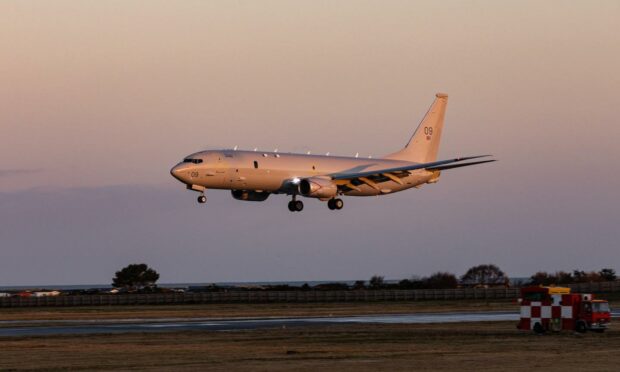Sir, – I wonder how many other people found it distasteful, and disturbing, to read that an RAF aircraft travelled from a base in Scotland to one in Lincolnshire to provide publicity for a visit by Prime Minister Boris Johnson?
Surely the plane, in which a photograph of the prime minister was taken, would have been sufficient?
When the public is encouraged, post COP26, to travel in a more environmentally friendly way, by train or bus, how can such an exercise be justified?
Alison Auld, Inverurie, Aberdeenshire.
Good soundbite but nothing more
Sir, – Maree Todd has aired in the press her hopes of Green Industries bringing high quality jobs to the North Highlands. This is a good soundbite and an aspiration that we will all support, but nothing more.
The reality is we are not seeing these jobs in sufficient numbers to provide employment opportunities for the people of Sutherland and Caithness. The Fraser of Allander Institute report ‘The Economic Impact of Scotland’s Renewable Energy Sector’ dated 2021 shows that in the whole of Scotland less than 23,000 jobs have been created in renewable technology industries – a considerable shortfall below the 130,000 Green industry jobs the SNP claimed in their manifesto for the 2011 Holyrood election.
It is therefore disingenuous of Maree Todd and the SNP to have expressed their opposition to the construction of the Rolls Royce mini nuclear reactors in the Highlands when both the US and the European Commission have classified nuclear as a green energy.
By adopting this position, Maree Todd and the SNP are obstructing the very employment opportunities they say they wish to create.
Graham Bruce, Culrain, Sutherland.
Maintenance may have eased damage
Sir, – One of the disasters following on from the privatisation of the UK railway and power distribution facilities has been the abandonment of line-side maintenance.
This has resulted in trees and vegetation growing immediately adjacent to the rails and cables and often the vegetation and trees are on soft, vulnerable made-up ground and on edges of narrow open spaces.
Storm winds that can blow up to hurricane speeds funnel down these narrow spaces resulting in domino effect tree collapses blocking transport routes and flattening power lines.
Pre-privatisation, British Rail had full-time maintenance squads who kept all cuttings, embankments and line-sides cleared of everything growing above boot height. Hydro-electric teams were ruthless with chainsaws keeping self-seeded trees well clear of toppling over on to their overhead lines.
I really believe that our communication and power infrastructure would have weathered recent storms a great deal better had the maintenance continued post-privatisation.
So who’s to blame then? All of us shareholders. And who’s having to pay for it? All of us tax payers!
C A Smith, Upper Garmouth, Fochabers.
